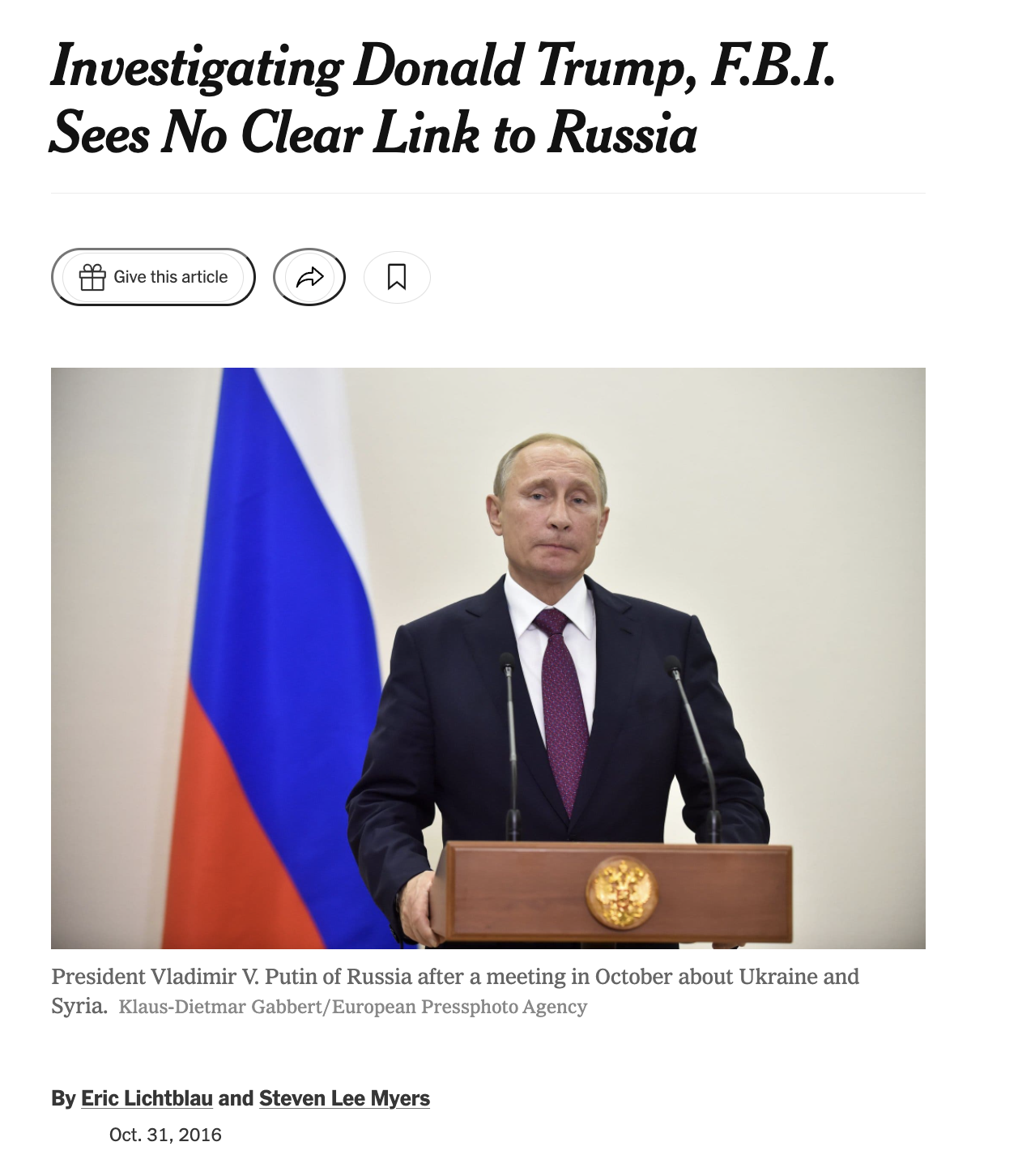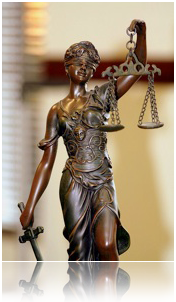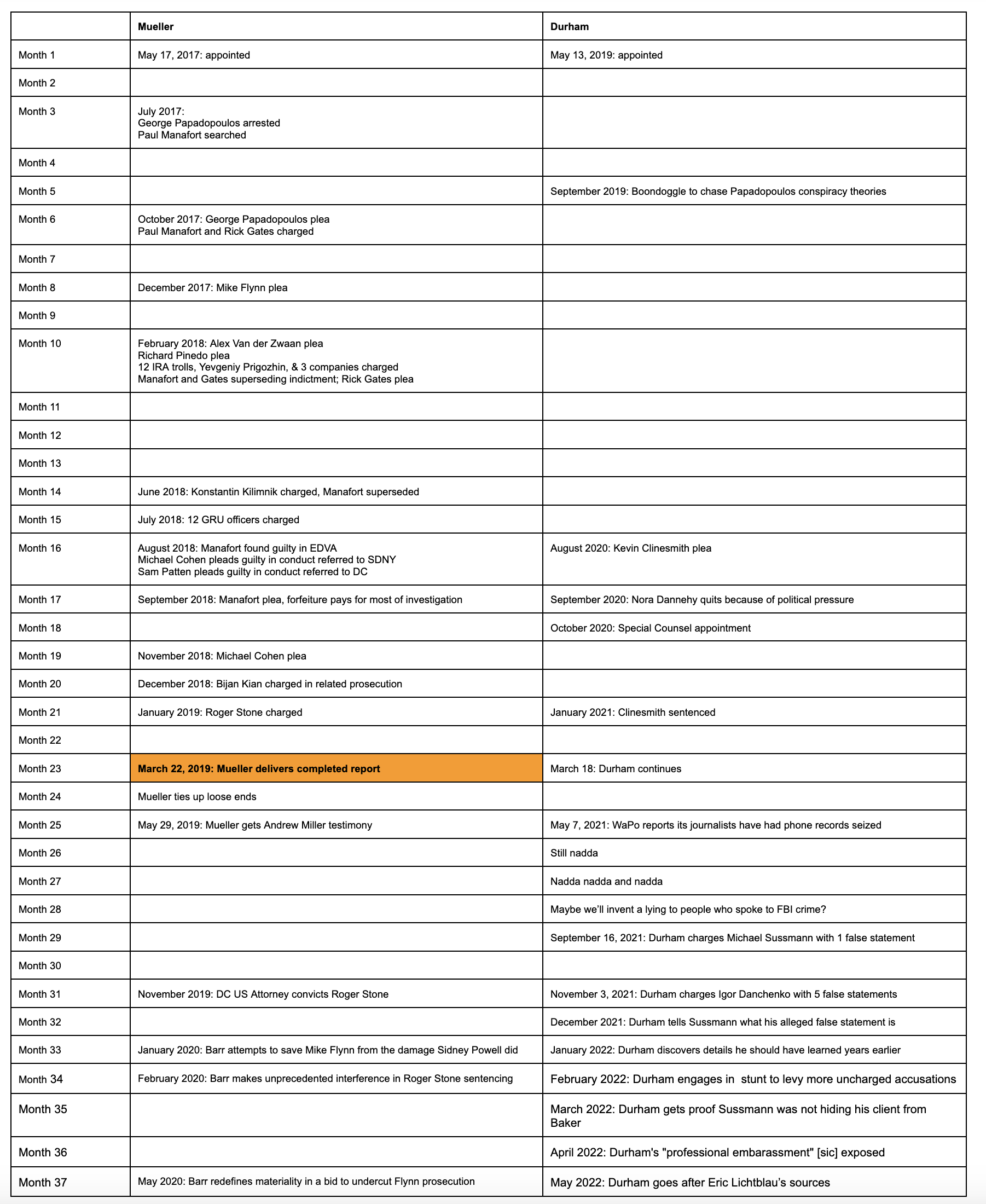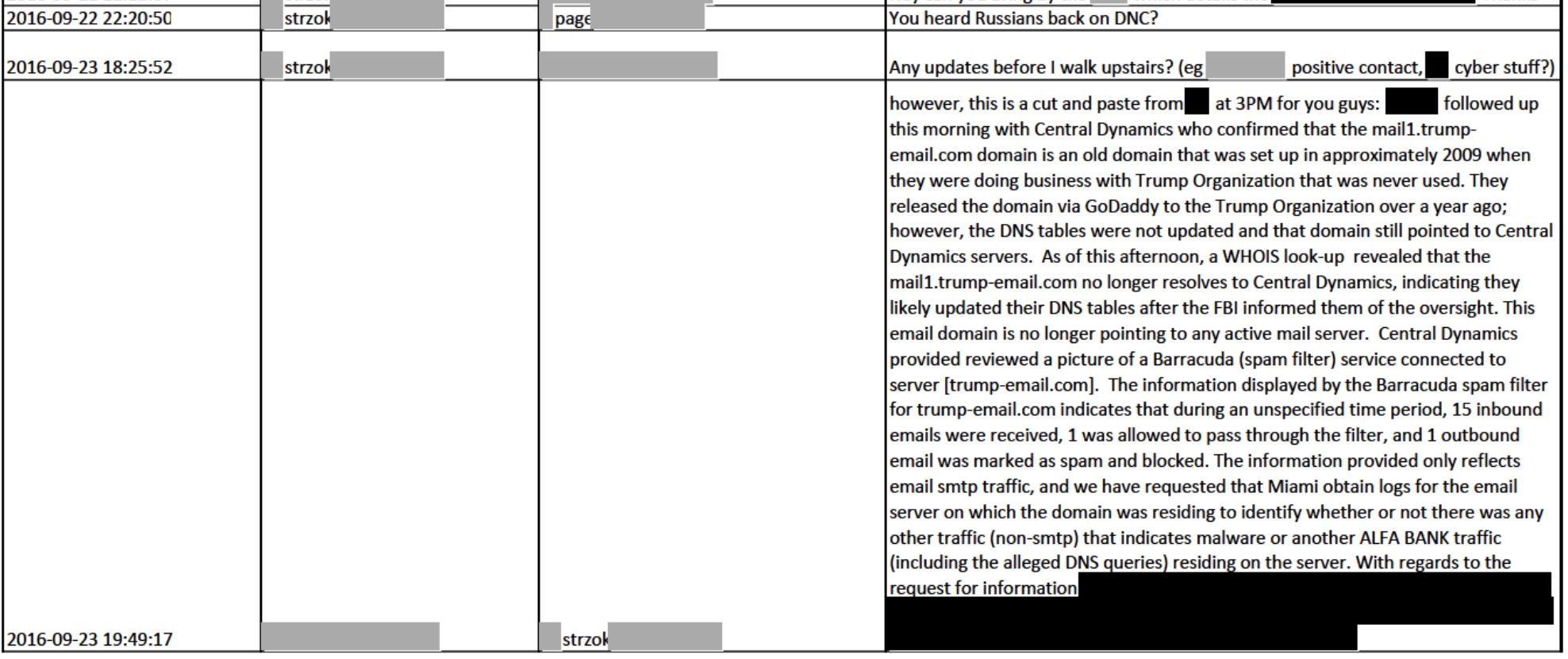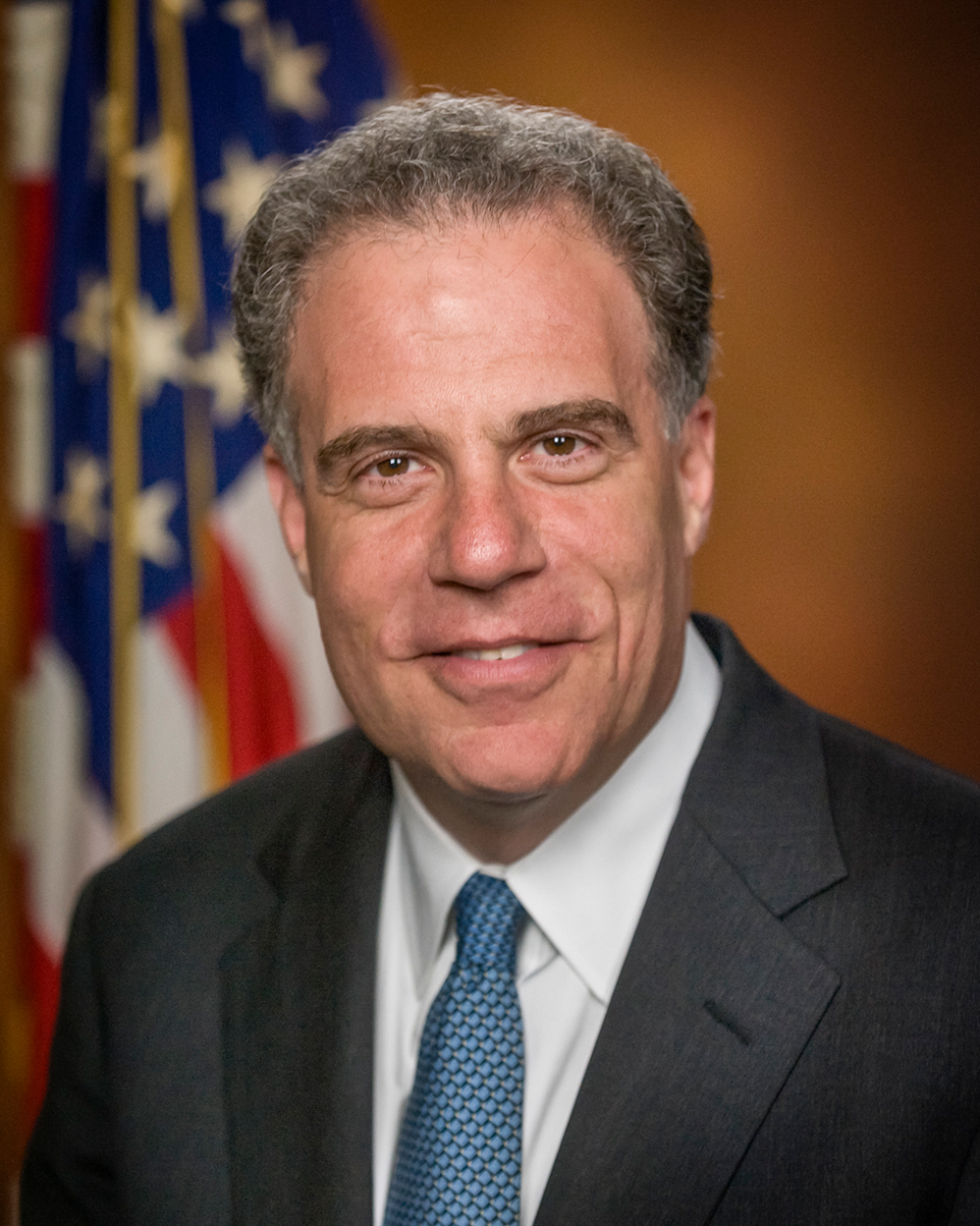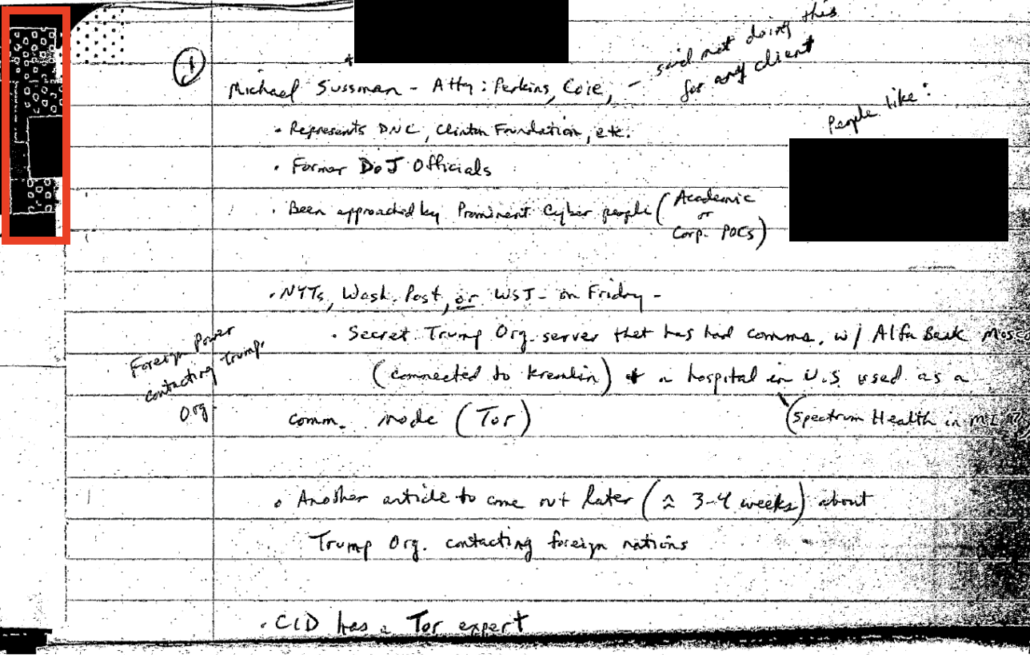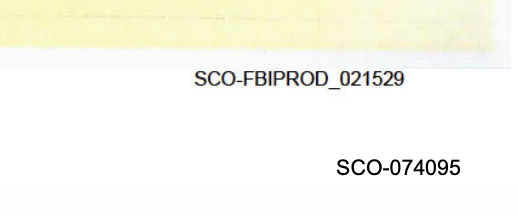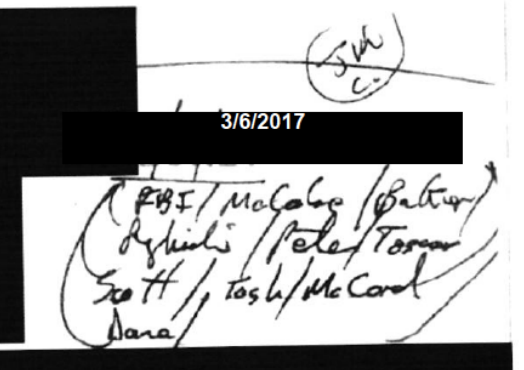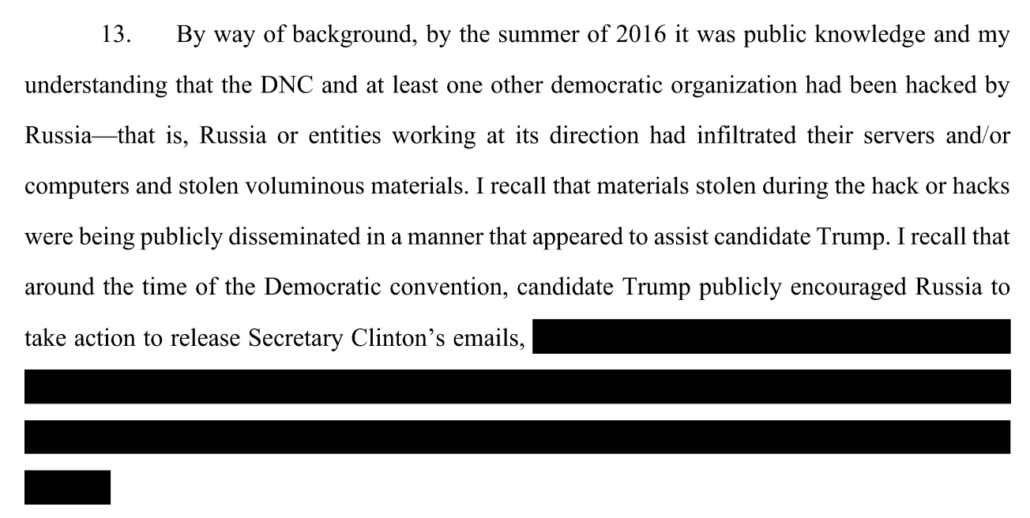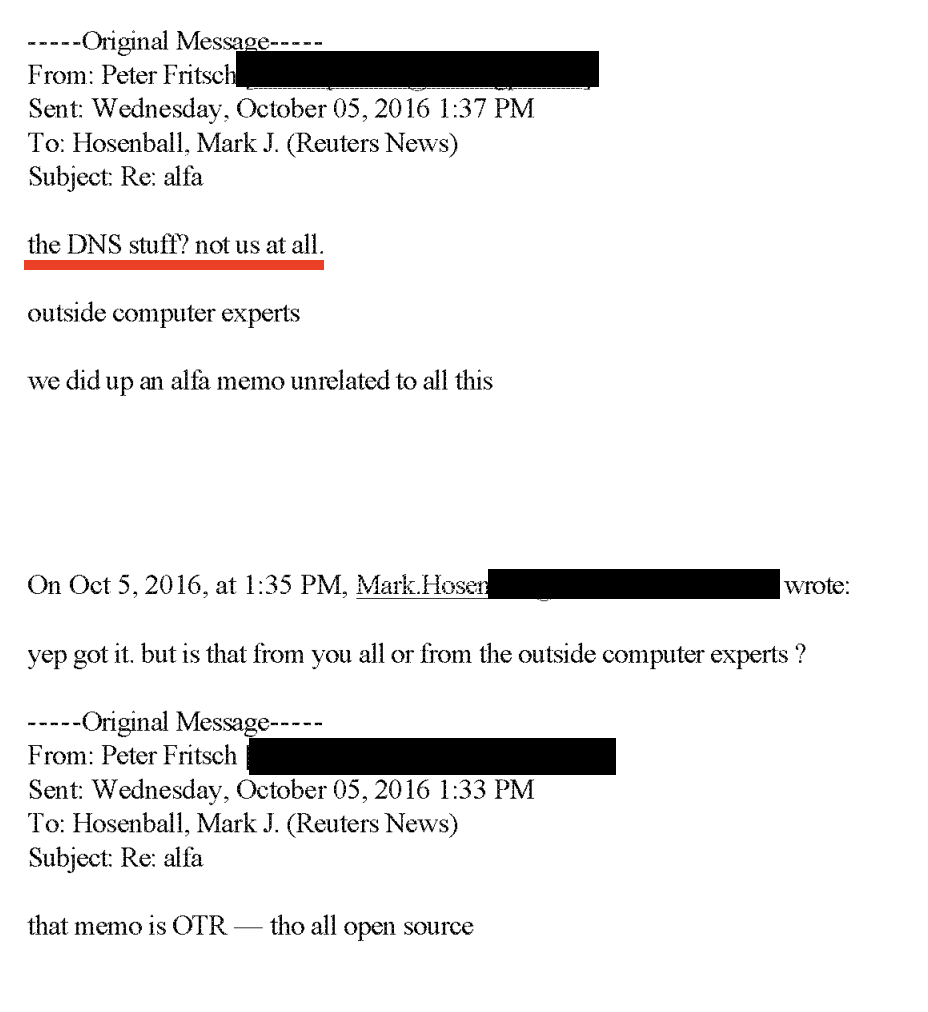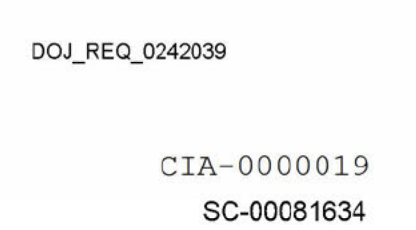I’ve been right about a lot of things regarding John Durham’s investigation (though not, apparently, that he would supersede the indictment against Michael Sussmann — maybe he was afraid of getting no-billed if he corrected the things in the indictment he has since discovered to be false?).
Perhaps the most prescient observation I’ve made, though, was that Durham had no fucking clue where to look for evidence related to his already-charged allegations.
I’ve seen reason to believe Durham doesn’t understand the full scope of where he needs to look to find evidence relevant to that case.
I said that in November. Since that time in the Sussmann case, Durham has had to publicly confess he had not:
Effectively, Durham spent most of three years speaking to those who would confirm his conspiracy theories, and not consulting the actual evidence. It took until six months after Durham charged Sussmann before Durham tested Sussmann’s sworn explanation for his Baker meeting — and when he checked, he found the evidence backed Sussmann’s explanation.
Six months after indicting Igor Danchenko, Durham asked to extend discovery another month
It’s that record that makes me so interested in Durham’s second bid to extend deadlines for classified discovery in the Igor Danchenko case.
After Danchenko argued he couldn’t be ready for an April 18 trial date, Durham proposed a March 29 deadline for prosecutors to meet classified discovery; that means Durham originally imagined he’d be done with classified discovery over six weeks ago. A week before that deadline, Durham asked for a six week delay — to what would have been Friday. Danchenko consented to the change and Judge Anthony Trenga granted it. Then on Monday, Durham asked for another extension, this time for another month.

When Durham asked for the first delay, he boasted they had provided Danchenko 60,000 unclassified documents and promised “a large volume” of classified discovery that week (that is, before the original deadline).
To date, the government has produced over 60,000 documents in unclassified discovery. A portion of these documents were originally marked “classified” and the government has worked with the appropriate declassification authorities to produce the documents in an unclassified format.
[snip]
Nevertheless, the government will produce a large volume of classified discovery this week
This more recent filing boasts of having provided just one thousand more unclassified documents and a mere 5,000 classified documents — for a case implicating two known FISA orders and several past and current counterintelligence investigations.
To date, the Government has produced to the defense over 5,000 documents in classified discovery and nearly 61,000 documents in unclassified discovery. The Government believes that the 5,000 classified documents produced to date represent the bulk of the classified discovery in this matter.
Danchenko waited six weeks and got almost nothing new.
See this post for an explanation of all the classified information that Danchenko should be able to demand and the onerous process that using it requires, called Classified Information Procedures Act. Even in November, I showed that Danchenko could likely make a case that he should get discovery from the FBI and NSA, and probably CIA and Treasury. There is no way Durham is getting through this case with just 5,000 classified documents.
As he noted in his opposition to this latest request for an extension, with each request, Durham’s proposed schedule was shrinking the time afforded Danchenko to review classified discovery before providing a list of the classified information he wanted to use at trial (called a CIPA 5 notice), first from 60 days to 40, and then from 40 days to 22.
On March 22, 2022, the Special Counsel filed a Consent Motion to Adjourn the Classified Discovery and CIPA Schedule. Dkt. 44. In his Motion, the Special Counsel sought to extend the deadline to produce classified discovery from March 29, 2022, to May 13, 2022. Id. at 2. The Special Counsel’s motion also sought to extend the dates for various CIPA filings and hearings. Id. Importantly, the Special Counsel’s proposed schedule reduced the amount of time within which Mr. Danchenko had to file his Section 5(a) written notice from approximately 60 days after the close of classified discovery to approximately 40 days.
[snip]
On May 9, 2022, the Special Counsel filed his Second Motion to Adjourn the Classified Discovery and CIPA Schedule. Dkt. 48. In his motion, the Special Counsel now tells the Court that he can provide the outstanding classified discovery by “no later than” June 13, 2022. See id. at 2. He also proposes a June 29, 2022, deadline for Defendant’s Section 5(a) written notice. Id. Therefore, the Special Counsel has essentially asked this Court to enter an Order that will now decrease Mr. Danchenko’s time within which to file his Section 5(a) written notice from approximately 40 days after the close of classified discovery to approximately 22 days.
[snip]
Mr. Danchenko would be substantially prejudiced by the Special Counsel’s proposed schedule because it significantly shortens the time period within which Mr. Danchenko can review any final classified productions and file his CIPA Section 5(a) notice. That is of particular concern to Mr. Danchenko because the Special Counsel has not provided sufficient notice of how much additional classified discovery may be forthcoming other than his “belie[f]” that the “bulk” of the classified discovery has already been produced.
Shrinking Danchenko’s deadlines would make the additional discovery that is still outstanding far less useful. In the Sussmann case, for example, it took over a month for Sussmann’s team to find the documents that disprove Durham’s case buried among 22,000 other documents provided on his extended deadline. So while Durham might be trying to comply with discovery obligations, arguing that the proper solution to his struggles fulfilling discovery is to shrink Danchenko’s own time to review the evidence suggests he’s not doing so in good faith.
Judge Trenga must have agreed. While he granted the government’s request for an extension, he gave Danchenko 42 days to submit his CIPA 5 notice.
A Russian dog named Putin ate Durham’s classified homework
I’ve noted how the post-invasion sanctions on Alfa Bank deprived John Durham of a second investigative team, Alfa Bank’s Skadden Arps lawyers, whose filings a judge observed seemed to be “written by the same people” as Durham’s.
But the aftermath of Putin’s attempt to overthrow Ukraine may be causing Durham even bigger problems in the Danchenko case.
When Durham asked for an extension of his CIPA deadline in the Sussmann case days after Russia extended its invasion of Ukraine, he explained that the people who had to write declarations in support of CIPA (usually agency heads like CIA Director William Burns or NSA Director Paul Nakasone) were busy dealing with the response to Ukraine.
However, the Government’s submission includes not only the Government’s memorandum but also one or more supporting declarations from officials of the U.S. intelligence community. The Government’s review of potentially discoverable material is ongoing, and these officials cannot finalize their declarations until that review is complete.
Moreover, recent world events in Ukraine have further delayed the Government’s review and the officials’ preparation of the supporting declaration(s). As a result, the Government respectfully submits that a modest two-week adjournment request to its CIPA Section 4 filing deadline is appropriate and would not impact any other deadlines, to include the currently scheduled trial date
Effectively, this request moved the CIPA deadline from a week before Durham’s classified discovery deadline to a week after; yet Durham just committed, once again, to finalizing his CIPA 4 submission almost a week before his classified discovery deadline in the Danchenko case.
That’s important because Durham overpromised when he said he could finish a CIPA filing before the discovery deadline. Durham filed a supplement to his CIPA 4 notice on May 7 (nine days before trial) that, unless Judge Cooper ruled orally at a closed hearing last week, remains outstanding. That’s not entirely unusual in a case that relies on classified information, but if Cooper were to rule this classified information was necessary for Sussmann’s defense, it would give Sussmann no time to actually prepare to use it.
Durham cited the Ukraine response again on March 22, a month after Russia launched its failed attempt to take Kyiv, when he asked for an extension on his classified discovery deadline.
However, recent world events in Ukraine have contributed to delays in the production of classified discovery. The officials preparing and reviewing the documents at the FBI and intelligence agencies are heavily engaged in matters related to Ukraine.
Importantly, these people focusing on keeping us safe from Russian aggression rather than, as Durham is, making us safe for Russian aggression, are different than the people cited in the Sussmann case. These aren’t senior officials, but instead those “preparing and reviewing the documents at the FBI and intelligence agencies.” That’s not William Burns, that’s FBI counterintelligence agents, among others.
In last week’s request for an extension, Durham didn’t mention Ukraine, but his reference to “overseas activities” suggests the response to Ukraine remains the problem.
However, recent world events continue to contribute to delays in the processing and production of classified discovery. In particular, some of the officials preparing and reviewing the documents at the FBI and intelligence agencies continue to be heavily engaged in matters related to overseas activities.
Unsurprisingly, Danchenko asked Trenga to require Durham to provide some kind of explanation for why “overseas activities,” probably Ukraine, continue to delay classified discovery in a case criminalizing an attempt to fight Russia’s attack on democracy in 2016.
Moreover, the Special Counsel has failed to adequately explain how “recent world events” (Dkt. 48 at 2) have specifically made it impossible for him to meet his discovery obligations. While it seems unlikely that the same government officials charged with declassifying discovery are also responding to events overseas, it certainly is possible. But, even if that is the case, the Special Counsel must offer more explanation than he has, especially in light of the fact that his prior motion to extend the discovery deadline was based on the events in Ukraine, and the ongoing nature of that conflict must or should have been considered when he requested the May 13 deadline.
Sadly, Trenga didn’t order up an explanation for why this delay, probably Ukraine-related, is causing so many difficulties for Durham’s prosecution of Danchenko.
KleptoCapture threatens at least one and possibly up to three key Durham figures
One reason I would have liked Trenga to force Durham to explain how a dog named Putin ate his classified homework is because the public response to Russia’s attempt to conquer Ukraine has already implicated three figures who are key to Durham’s case. While I need to update it, this post attempts to capture everything that the US government and some partners have done since the expanded invasion.
Dmitry Peskov
Perhaps the response least damaging to Durham’s case — but one that will affect discovery — involves Dmitry Peskov. As I explained in this post, Durham made Peskov’s relationship with Chuck Dolan and Olga Galkina a key part of his indictment against Danchenko.
In his role as a public relations professional, [Dolan] spent much of his career interacting with Eurasian clients with a particular focus on Russia. For example, from in or about 2006 through in or about 2014, the Russian Federation retained [Dolan] and his then-employer to handle global public relations for the Russian government and a state-owned energy company. [Dolan] served as a lead consultant during that project and frequently interacted with senior Russian Federation leadership whose names would later appear in the Company Reports, including the Press Secretary of the Russian Presidential Administration (“Russian Press Secretary-I”), the Deputy Press Secretary (“Russian Deputy Press Secretary-I”), and others in the Russian Presidential Press Department.
[snip]
In anticipation of the June 2016 Planning Trip to Moscow, [Dolan] also communicated with [Peskov] and Russian Deputy Press Secretary-I, both of whom worked in the Kremlin and, as noted above, also appeared in the Company Reports.
[snip]
Additionally, on or about July 13, 2016, [Galkina] sent a message to a Russia-based associate and stated that [Dolan] had written a letter to Russian Press Secretary-1 in support of [Galkina]’s candidacy for a position in the Russian Presidential Administration.
On March 3, the State Department added Peskov to the sanctions list under a 2021 Executive Order President Biden signed, in part, to target those who (among other things), “undermine the conduct of free and fair democratic elections and democratic institutions in the United States and its allies and partners.” On March 11, Treasury added Peskov’s family members to the sanctions list. The package used to sanction Peskov would have been the product of intelligence reports circulated within the US government.
While the legal reason Peskov was sanctioned pertained to his official role in the Russian government (and the lavish lifestyles his family enjoys even with his civil service salary), State also described Peskov as “the chief propagandist of the Russian Federation.” That, by itself, would be unremarkable. But if — as even Durham alludes — Peskov had a role in feeding Galkina disinformation for the Steele dossier, particularly if he crafted disinformation to maximally exploit Michael Cohen’s secret call with Peskov’s office in January 2016, that could be a part of the sanctions package against Peskov. If it were, then it would be centrally important discovery for Danchenko.
Oleg Deripaska
Then there’s Oleg Deripaska. This post lays out in depth the reasons why Danchenko would have reason to demand information on Deripaska’s role in the dossier, including:
- Evidence about whether Oleg Deripaska was Christopher Steele’s client for a project targeting Paul Manafort before the DNC one
- All known details of Deripaska’s role in injecting disinformation into the dossier, up through current day
- Details of all communications between Deripaska and Millian
Given his blissful ignorance of the actual results of the Mueller investigation and the DOJ IG Carter Page investigation, Durham was always going to have a nasty discovery surprise in complying with such requests. Plus, a search last October of two Deripaska-related properties made clear that the most likely source of disinformation in the dossier was under aggressive criminal investigation for sanctions violations.
A recent Bloomberg story reported that that criminal investigation has now been moved under and given the prioritization of the KleptoCapture initiative started in response to the Ukraine war.
Deripaska has been sanctioned since 2018 for his ties to Vladimir Putin, and the seizures at a Washington mansion and New York townhouse linked to him predate the invasion of Ukraine. But the investigation of Deripaska’s assets is now part of an escalating U.S. crackdown on ultra-rich Russians suspected of laundering money and hiding assets to help finance Putin’s regime.
The raids were key steps to unearth information that may determine whether — and how — Deripaska moved money around. Among the mishmash of items taken from the New York and Washington properties were half a dozen works of fine art, sunglasses, hiking boots, housewares, financial records, telephone bills and other documents, according to the people, who asked not to be identified because the investigation hasn’t been made public.
The Deripaska inquiry is now part of a special U.S. Department of Justice task force dubbed “KleptoCapture,” according to New York federal prosecutor Andrew Adams, who is heading up the group.
“As Russia and its aggression continues, we have our eyes on every piece of art and real estate purchased with dirty money,” Deputy Attorney General Lisa Monaco said at a recent news conference.
If DOJ plans on indicting Deripaska — for sanctions violations and anything else on which the statute of limitations has not expired — they might delay discovery cooperation with Durham until they do so. And if such a hypothetical indictment mentioned Deripaska’s role in facilitating the 2016 election interference and/or successful efforts to exploit the dossier to undermine the Russian investigation, it might make Durham’s charges against Danchenko unsustainable, even if he is able to otherwise fulfill his discovery requirements. Durham’s theory of prosecution is that Danchenko is the big villain that led to FBI confusion over the dossier, but Deripaska seems to have had a far bigger role in that.
Sergei Millian
Finally, there’s Sergei Millian, who happened to meet with Deripaska in 2016 at an event, the St. Petersburg International Economic Forum, that played a key role in the election operation.

In the same week Millian met Deripaska, a bunch of cybersecurity experts first started looking for evidence of Russian hacking in DNS data and Igor Danchenko was in Moscow meeting with Chuck Dolan and his other named Steele dossier sources.
As the DOJ IG Report and declassified footnotes make clear, FBI opened a counterintelligence investigation into Millian in October 2016. All the evidence indicates that the investigation did not arise from Crossfire Hurricane and, given that Millian’s ID was hidden in the dossier reports shared with NYFO on their way to HQ, and given that other information on Millian was fed into DC, not NY, was probably predicated completely independent of Crossfire Hurricane.
In addition, we learned that [Millian] was at the time the subject of an open FBI counterintelligence investigation. 302 We also were concerned that the FISA application did not disclose to the court the FBI’s belief that this sub-source was, at the time of the application, the subject of such an investigation. We were told that the Department will usually share with the FISC the fact that a source is a subject in an open case. The OI Attorney told us he did not recall knowing this information at the time of the first application, even though NYFO opened the case after consulting with and notifying Case Agent 1 and SSA 1 prior to October 12, 2016, nine days before the FISA application was filed. Case Agent 1 said that he may have mentioned the case to the OI Attorney “in passing,” but he did not specifically recall doing so. 303
301 As discussed in Chapter Four, [Millian] [redacted]
302 According to a document circulated among Crossfire Hurricane team members and supervisors in early October 2016, [Millian] had historical contact with persons and entities suspected of being linked to RIS. The document described reporting [redacted] that [Millian] “was rumored to be a former KGB/SVR officer.” In addition, in late December 2016, Department Attorney Bruce Ohr told SSA 1 that he had met with Glenn Simpson and that Simpson had assessed that [Millian] was a RIS officer who was central in connecting Trump to Russia.
303 Although an email indicates that the OI Attorney learned in March 2017 that the FBI had an open case on [Millian], the subsequent renewal applications did not include this fact. According to the OI Attorney, and as reflected in Renewal Application Nos. 2 and 3, the FBI expressed uncertainty about whether this sub‐source was Person 1. However, other FBI documents in the same time period reflect that the ongoing assumption by the Crossfire Hurricane team was that this sub‐source was [Millian].
Plus, Mueller found plenty on Millian to raise separate issues of concern.
Given several other counterintelligence cases developed in NYFO, the predication likely had more to do with Russia’s effort to use cultural and other diaspora groups as a way to covertly extend Russian influence.
And in fact, Millian’s group — the Russian American Chamber of Commerce — has already made a cameo appearance in one such prosecution, that against Elena Branson, a complaint that was rolled out in the same week as the sanctions against Peskov.
a. On or about January 30, 2013, BRANSON received an email from an individual using an email address ending in “mail.ru.” Based on my review of publicly available information, I have learned that this individual was a Senior Vice President of the Russian American Chamber of Commerce in the USA. This email had the subject line “Problem.” and the text of the email included, among other things, a portion of the FARA Unit’s website with background on FARA. In response, BRANSON wrote, in part, “I am interested in the number of the law, its text in English[.]” The sender then responded with “Lena, read …” and copied into the email background on FARA and portions of the statute.
This awareness and flouting of registration requirements is the kind of thing that often features in prosecutions for 18 USC 951 violations. And, at least in the case of Branson, the statute of limitations can extend so long as the person in question continues to play a role in US politics, though in Branson’s case, she only fled the country 18 months ago.
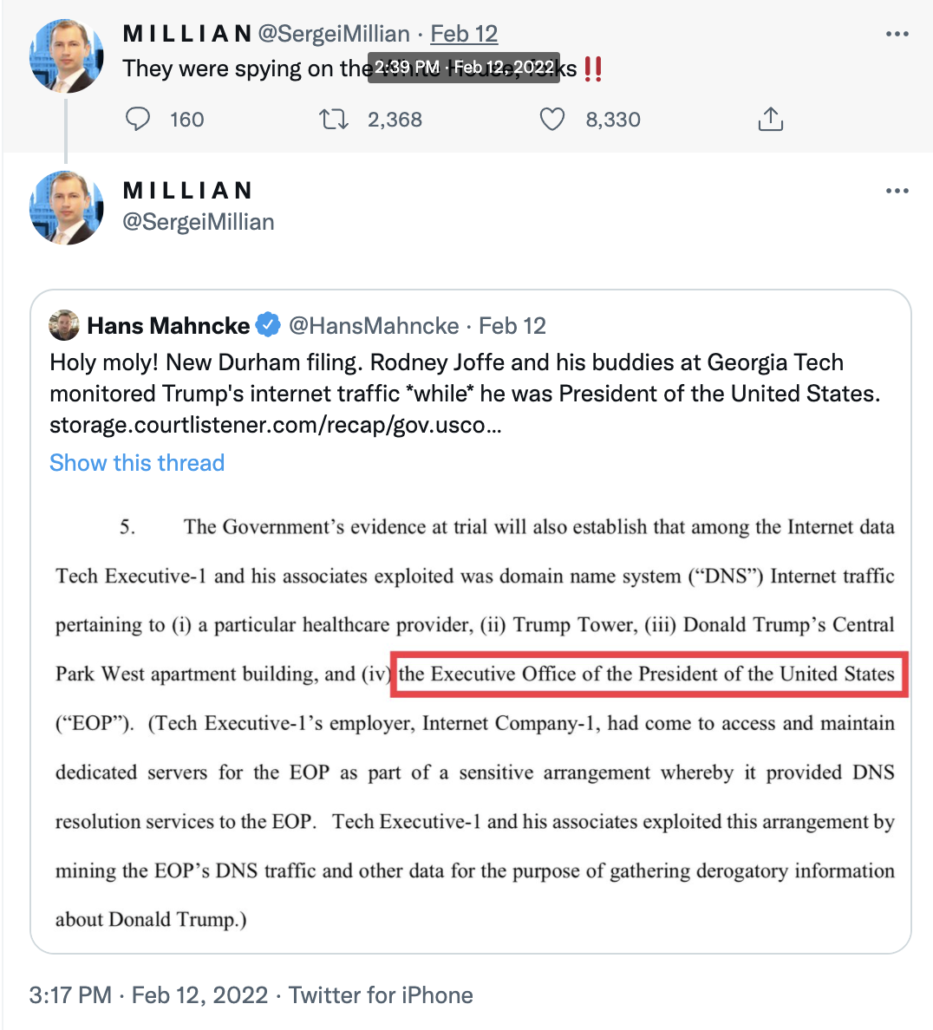
If the FBI believed Millian was an unregistered foreign agent who fled to avoid an investigation in 2017, his ongoing involvement in efforts to gin up an investigation into the investigation — particularly claims that, even according to Durham, misinterpreted facts his own prosecutors filed and thereby contributed to death threats against witnesses in the investigation — then it wouldn’t rule out an investigation into Millian himself, an investigation that would have preceded Durham’s reckless reliance on him (or rather, Millian’s unvetted Twitter feed) as a star witness against Danchenko.
Even Millian’s public claim (albeit one offered by someone the FBI considers an embellisher) that he called the White House directly to elicit this investigation could be of interest.
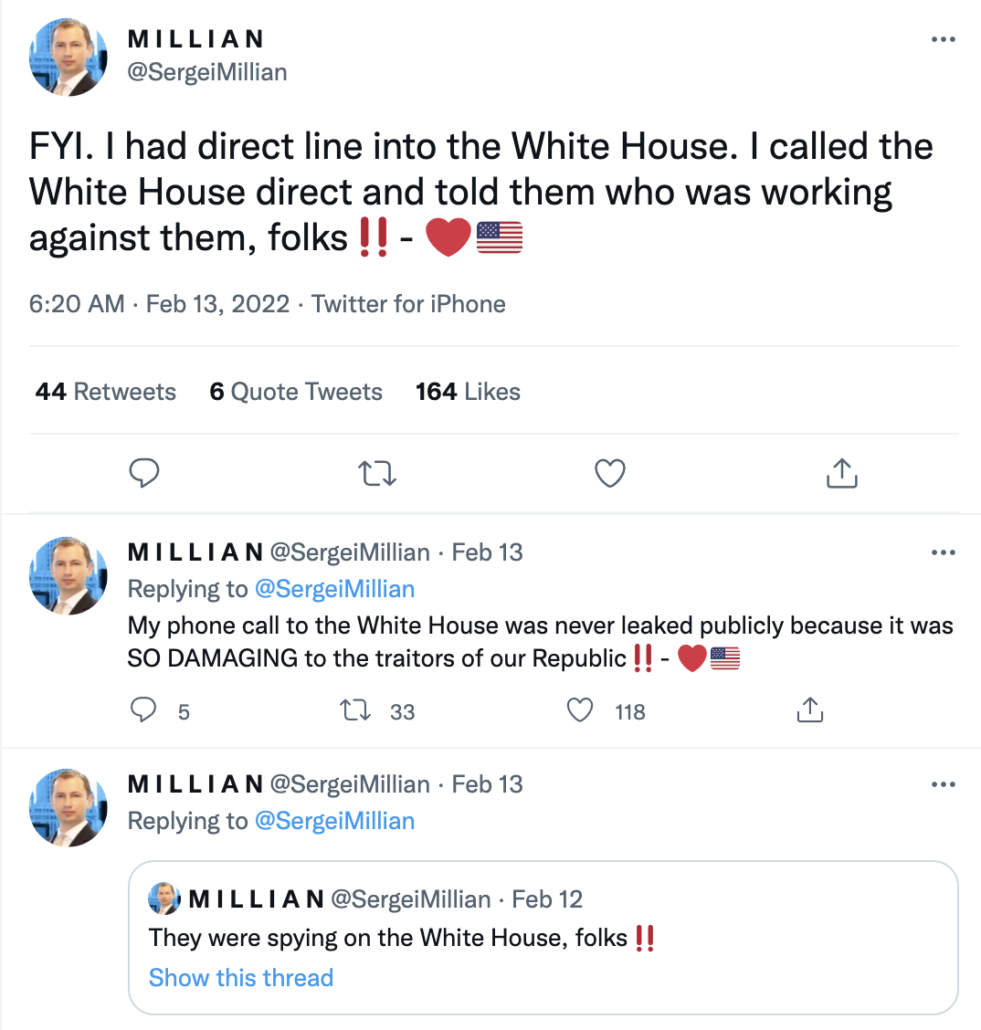
We can now say with great certainty that Durham didn’t check the most obvious sources of evidence against key players involved in the Steele dossier, such as DOJ IG’s backup files in the Carter Page investigation that is the primary focus of Durham’s Danchenko indictment. That makes it highly likely he never bothered to see whether other parts of DOJ considered key players in the Steele dossier to be actual threats to democracy.
One of those key players is undoubtedly Oleg Deripaska. And the renewed focus on Russian influence operations may expand beyond that.

